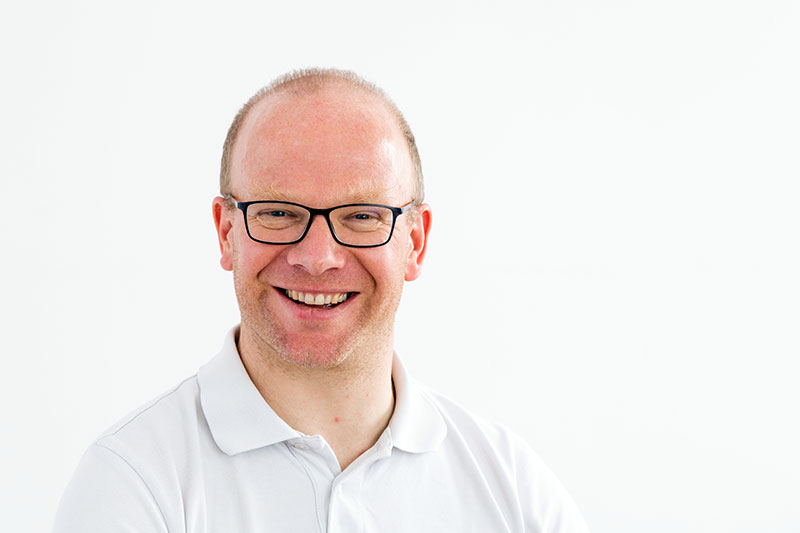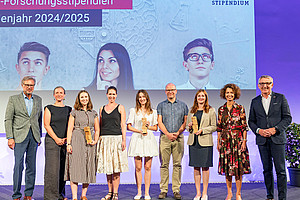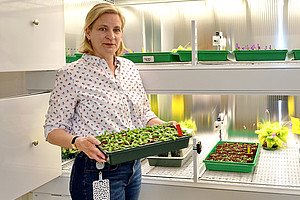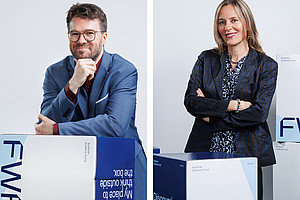Everyone is talking about Big Data these days, which is compiled from a wide range of sources and channels. How do you deal with it? What information can you get from it and what can it be used for? And how do data-based technologies change the economy and society? Stefan Thalmann answers these questions with his research and with the new Business Analytics and Data Science Centre at the University of Graz, which will open its doors for the first time on November 12. “We’re closing a gap between technology and its users in the social and economic sciences,” emphasises Thalmann, who considers himself a “translator” to communicate what the specific application areas need from computer science – and, conversely, to convey the benefits of new technologies.
“Digitisation affects many day-to-day workflows at most companies, the job profiles are changing and furthermore, entirely new segments and occupations are being created,” Thalmann summarises. The wealth of data that are collected and exchanged in industrial value-creation chains, for example, make it possible for the production process to become much more flexible. The quality and efficiency are improving at the same time. On the other hand, this exchange creates additional risks – for example that competitors might be able to reconstruct critical know-how from transmitted data.
The researcher is also interested in what these changes might mean for society. He is involved in the “Smart Regulation” Field of Excellence as much as in the research group “Human Factor and Digital Transformation”.
Explaining decisions
The use of artificial intelligence-based chatbots in personnel selection is a subject that Thalmann deals with on a scientific level. There is technical difficulty in tracking the algorithms’ decision-making process. “However, users expect even more precise explanations from artificial intelligence than they do from humans,” the business informatics expert determined. He is now looking for ways to make the chatbots’ steps explainable and thus increase trust in the technology. “This also applies when artificial intelligence is used during court processes or in public administration,” Thalmann says.
Getting students up to speed
Stefan Thalmann studied business informatics in Halle, Germany, received his degree in Innsbruck and then headed an application-oriented research group at the Graz University of Technology. He has been a professor in Business Analytics and Data Science at the University of Graz since October 2018. A priority in his teaching is to break down barriers to understanding between management experts and technicians to make it easier to find expedient technology solutions. He is closely involved in the cooperation with the Graz University of Technology as part of “Route 63” and, with Uni for Life, plans a university course for professionals who want to stay on the ball with their technological skills.
University of Graz - Hotspot of Climate Research
Effective and ethically justifiable strategies for reducing emissions can only be developed in interdisciplinary cooperation. The Field of Excellence Climate Change Graz is based on many years of interdisciplinary research experience and expertise in the following areas:
- Physical Climate Science
- Earth Sciences and Climate
- Climate and Environmental Economics
- Innovation and Sustainability Research
- Environmental Social Science
- Climate and Environmental Ethics
- Climate and Environmental Law
- Environmental Biology
- Environmental Chemistry
An important pillar for interdiciplinary research is the Doctoral Programme "Climate Change", in which more than 20 young scientists from eleven countries conduct research. The Wegener Center for Climate and Global Change is the linchpin of the cooperation, embedded in a dense international network.The Wegener Center also hosts a joint research focus area on hydrological extremes in a changing climate.





